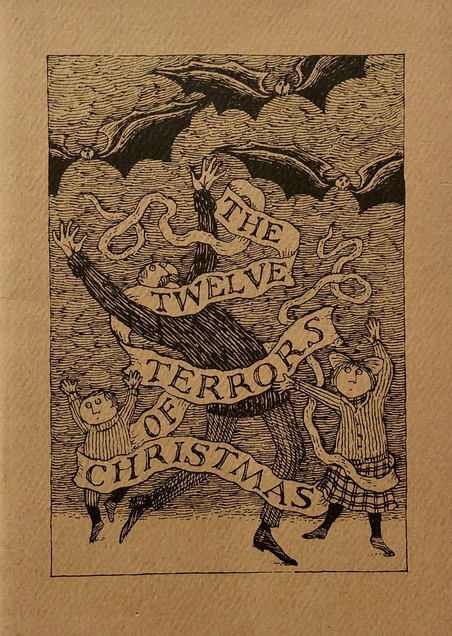In an article titled “John Updike: Suspicious of Santa, but fond of Christ” written for America Magazine, writer James T. Keane played to the season and began his feature with a quote from John Updike:
“A man of no plausible address, with no apparent source for his considerable wealth, comes down the chimney after midnight while decent, law-abiding citizens are snug in their beds—is this not, at the least, cause for alarm?”
Keane continued, “This is the week to ask: What exactly is Santa Claus up to? John Updike wrote the above about the suspicious fat man who breaks into our homes for his brilliant comic piece, ‘The Twelve Terrors of Christmas,’ first published in The New Yorker at Christmastime in 1992 and later released as a little book illustrated by Edward Gorey. The tone of it is classic Updike—dryly reported detail that provokes a laugh and an insight into the weirder aspects of accepted cultural tenets.”
On a more serious note, Keane recalled that when Updike died in 2009, this magazine’s obituary was written by its former editor in chief, George W. Hunt, S.J., “who had written on Updike himself and also been a longtime friend. (George got away with a title that probably would not have made it past the censors in previous ecclesiastical ages: John Updike and the Three Great Secret Things: Sex, Religion and Art.)”
America Magazine gave Updike its Campion Award in 1998, and Updike’s acceptance remarks later appeared in the magazine under the title “A Disconcerting Thing,” which, Keane wrote, “is a beautiful piece of prose writing, up there with Updike’s most well-known non-fiction works. Unlike Edmund Campion, S.J., who had given his life for his Catholic faith, Updike noted, most Americans didn’t have to face such stark realities. ‘It is all too easy a thing to be a Christian in America, where God’s name is on our coinage, pious pronouncements are routinely expected from elected officials, and churchgoing, though far from unanimous, enjoys a popularity astounding to Europeans,’ he commented. ‘As good Americans we are taught to tolerate our neighbors’ convictions, however bizarre they secretly strike us, and we extend, it may be, something of this easy toleration to ourselves and our own views.”
Read the rest of the article.

